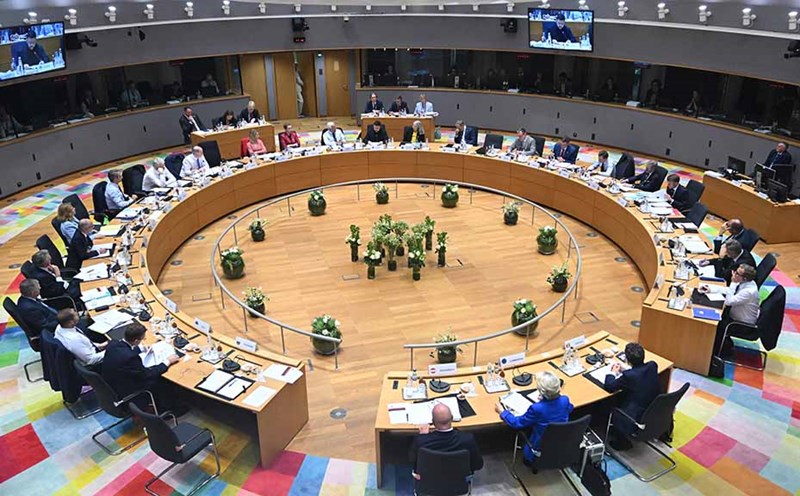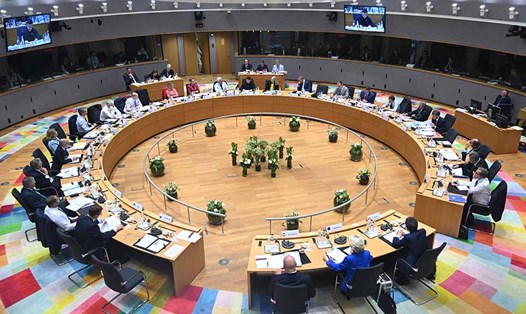Plans to seize Russian assets to fuel the Ukrainian budget are causing an unprecedented crack within Europe. Securities depositories Euroclear - which holds a large part of its frozen Russian assets - warned that it could sue the EU if forced to participate, putting Brussels in a position to face a family - being counter-sued by a European institution.
In an interview with Le Monde newspaper last weekend, CEO Valerie Urbain emphasized that Euroclear is ready to sue the EU if the bloc tries to force the organization to commit the seizure of frozen Russian state assets here.
Currently, Euroclear processes about 46,000 billion USD in securities each year for global financial institutions. For Russia alone, the organization manages about 200 billion USD out of a total of 300 billion USD of assets of the Russian Central Bank frozen by the West after the escalation of the Ukrainian conflict in 2022.
Ms. Urbain affirmed that the forced confiscation would "be illegal" and if the EU forced it, Euroclear would "take legal action".
There is a law. Depending on the legal framework, we will decide what is possible and what we want to do, she said.
When asked if a EU lawsuit could happen, she stressed: Its not impossible.
According to Ms. Urbain, prestige is a vital factor. The most important thing for Euroclear is reliability. We are a key link and must maintain correctness to ensure the stability of the financial market, said Ms. Urbain.
Meanwhile, European Commission President Ursula von der Leyen is campaigning to use Russian assets as collateral for a 140 billion euro loan to support Ukraine - a plan that Belgium has publicly opposed.
Brussels wants to implement but is also worried about legal risks, while member countries do not want to take responsibility alone.
The EU has recently classified the profits from frozen Russian money as unusual profits not belonging to Moscow and transferred them to Kiev. However, the EU's own legal community admits that this is a very "flexible" interpretation.
The situation is even more urgent as the West, according to The Economist and Financial Times, is no longer able to provide long-term funding to Ukraine without touching on Russian assets. Kiev also struggled to negotiate a new loan from the International Monetary Fund (IMF), following a series of un solved corruption scandals.
According to Ukraine's KSE Economic Institute, the country's budget is facing a $53 billion annual revenue shortfall, and the West is expected to continue to bear the majority.
Moscow has repeatedly warned that any act of property seizure is an theft, destroying the trust of third countries in the Western financial system which could have far-reaching consequences beyond the Ukrainian conflict.











